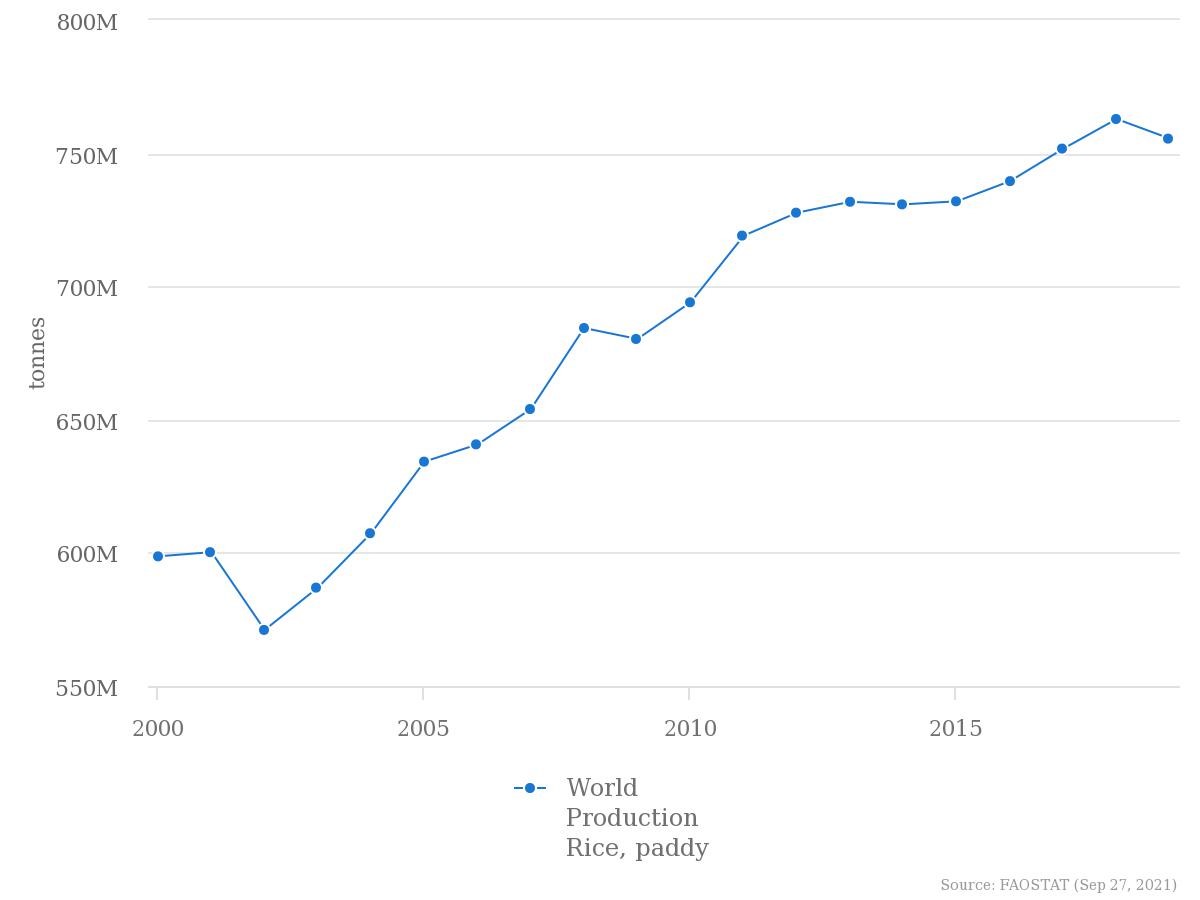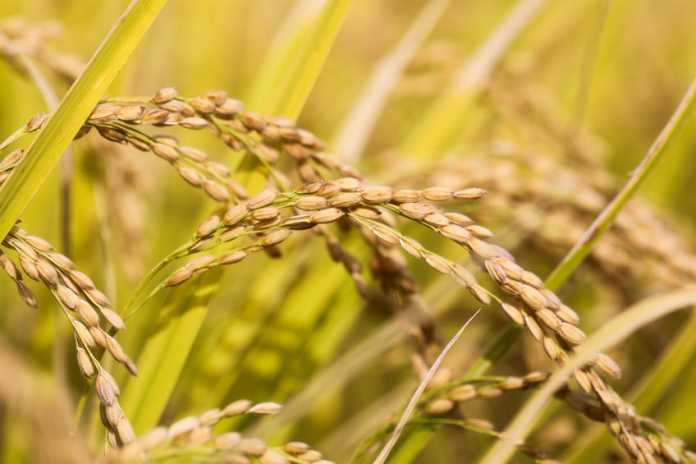A story published by Science News says climate change threatens to cause a collapse in rice production. Nothing could be further from the truth. Data from the United Nations Food and Agriculture Organization (FAO) conclusively show rice production has steadily increased as the earth has modestly warmed in response to improved growing conditions.
A Science News story, titled “Rice feeds half the world. Climate change’s droughts and floods put it at risk,” claims rice production is at risk around the world due enhanced extreme weather events from climate change. Science News writes:
Farmers in China, India, Bangladesh, Indonesia, Vietnam — the biggest rice-growing countries — as well as in Nigeria, Africa’s largest rice producer — also worry about the damage climate change will do to rice production. More than 3.5 billion people get 20 percent or more of their calories from the fluffy grains. And demand is increasing in Asia, Latin America, and especially in Africa.
Science News is stoking fears of a climate change induced rice decline without reference to any evidence or data. Perhaps that’s because the data does not support its alarmist claims.
In its recent Sixth Assessment Report (AR6) the U.N. Intergovernmental Panel on Climate Change reported rainfall has increased but flooding has not, writing, “heavier rainfall does not always lead to greater flooding … [and] there is low confidence in the human influence on the changes in high river flows on the global scale.”
Concerning drought the IPCC distinguishes four categories of drought in AR6: hydrological, meteorological, ecological, and agricultural.
According to the IPCC, there is limited evidence climate change has increased the number, duration, or intensity of hydrological or meteorological droughts, and it has only medium confidence it has “contributed to changes in agricultural and ecological droughts and has led to an increase in the overall affected land area.”
Even for ecological and agricultural droughts the data is a mixed bag. The IPCC divides the world into 47 separate regions of study when analyzing drought trends, and its data suggest ecological and agricultural drought may have increased during the period of modest warming in 12 of those 47 regions. However, in only two of those regions does the IPCC have even “medium confidence” for any human role in the observed increase. For the remaining regions experiencing a possible increase in droughts, the IPCC has low confidence human activities have had any discernible impact.
Because neither flooding nor drought are increasing in number or intensity, they also aren’t reducing rice production.
Data show rice harvests have regularly set records in every country Science News claims face climate change induced rice declines. FAO data recorded between 2000 and 2019 show rice production increased more than 26 percent worldwide, setting new records for production 12 times. (See the figure below)

Looking at the individual countries which Science News says are threatened with falling rice harvests, even accounting for seasonal ups and downs in production due to weather, FAO data show that between 2000 and 2019:
- Rice production in Bangladesh increased by more than 45 percent.
- Rice production in China increased by more than 11 percent.
- Rice production in India increased by more than 39 percent.
- Rice production in Indonesia increased by more than 5 percent.
- Rice production in the Nigeria increased by nearly 156 percent.
- Rice production in Viet Nam increased by nearly than 34 percent.
Even if there was a global rice production issue, scientists have recently discovered how to double rice yields as CR reported in While Climate Activists Push “Crop Failures”, Science Doubles the Crop Yields.
This new science would solve any rice production crisis as the scientists reported the rice “…grew longer roots, photosynthesized more efficiently, and could better withstand stress from drought.”
Science News is stoking unwarranted fear by falsely implying climate change is harming rice production globally and in the developing countries most dependent on rice as a staple food product.
In truth, rice production has risen as the earth has modestly warmed. Agronomy and botany explain that this is due to the fact that growing conditions, for instance available rainfall and photosynthetic efficiency, have improved as a result of increased atmospheric carbon dioxide, modest warming, and improved precipitation.
Data clearly demonstrate that rice growers are reaping record harvests, contributing to declining rates of hunger worldwide. Those are the facts—the good news—Science News would be reporting if it were pursuing the truth rather than pushing climate alarm.

















